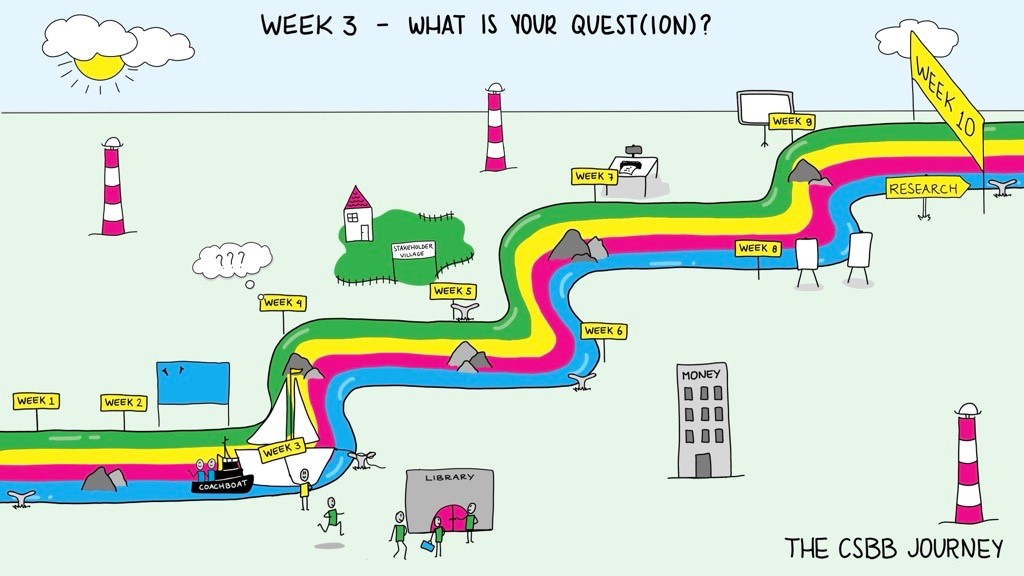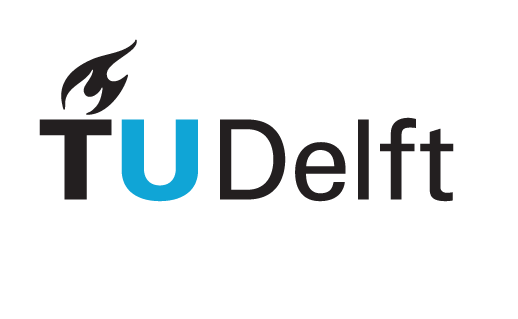
Week 1.3: What is your quest(ion)?#
Perhaps the most important skill for a scientist is the ability to ask good research questions and then design an inquiry to answer them. How you define good research questions can be complicated because good research questions need to be. The skill takes experience and knowledge to develop. This week, we will guide you as you start to define your project. It’s also important not to rush to a question, but make sure you know enough to ask the questions and spend time refining and improving these before you start your experiments.
It is one thing to select a project or research question, and it’s a whole additional layer of complexity to collaboratively create a project. It has the likelihood of being more successful, innovative and with greater impact, but also slower to start, and more complicated to fully include all perspectives. In this week we’ll dive further into understanding research questions and how to do it collaboratively.
The schedule for week 3 includes:
Monday:
Science spotlights
Workshop: Creating a research question
Workshop: Placemat proposal activity part I - reading NWO-XS proposal
Wednesday:
Workshop: Placemat proposal activity part II - fill out the placemat in groups
Friday:
Friday Symposium
Workshop: Choosing a Problem and Creating Good Research Questions#
Designing an academic research project is a difficult task: it is a series of decisions which affect the various aspects of the research. For example, the method choice often defines what kind of data you will get, which then affects the data analysis methods, which limits the kind of research questions you can relate to the method.
During this workshop, we will discuss the choices you need to make while designing a research project, and you will practice the process of creating research questions. You will also investigate examples of research questions from published articles and create a list of criteria for good research questions.
Key concepts#
Research design, research questions, criteria for good research questions
Workshop: Placemat Proposal Part I and II#
This two-part workshop will guide you through that process. On Monday, you’ll individually read and analyze an example NWO XS proposal. You’ll reflect on what makes it effective (or not) and consider how its structure, clarity, and vision come together. On Wednesday, we’ll use a structured placemat activity to help your group dissect the proposal collaboratively. Each team member will first capture their individual insights in their own quadrant—focusing on strengths, weaknesses, open questions, and ideas for improvement. Then, your group will synthesize these perspectives into a shared summary in the center of the placemat. This shared understanding will lay the foundation for designing your own collaborative proposal.
Key concepts#
Collaborative learning, understanding a research proposal.
Relevant learning goals#
Students will identify the essential components of a research proposal.
Students will collaborate with peers to define how a research proposal is written.
Students will elaborate the succinct take home message of a research proposal
Group Activity of the Week#
Start narrowing your research question. Figuring out what you want to include, what should be excluded, and your focus.
Create a strategy of how you’re going to research your project, what will be necessary and your timelines.
Also keep reading and discussing sources looking for ideas and insights.
Discussion Questions#
What do we need to know to further define our project?
How are you making sure that everyone’s ideas are being included in developing your project?
What interests you in this project?
What motivates you to want to answer this question? What do you think motivates your fellow group members in proposing a question?
How do you hope an answer to this question could be used?
How do you balance advocating for your ideas and letting go of them when someone offers something better?
Weekly Submitted Assignments#
Group#
The first list of topic-specific research questions for supervisor feedback.
Individual#
Reflect on your favorite of the research questions from your group. What interests you in this projectWhy do you think it is interesting? What connects you to this question and What motivates you to want to answer this question? How do you hope an answer to this question could be used? (½ page)
References#
Problem choice and decision trees in science and engineering: Cell Michael Fishbach, Volum 187, Issue 8, P1828-1833, April 11, 2024. https://www.cell.com/cell/fulltext/S0092-8674(24)00304-0
